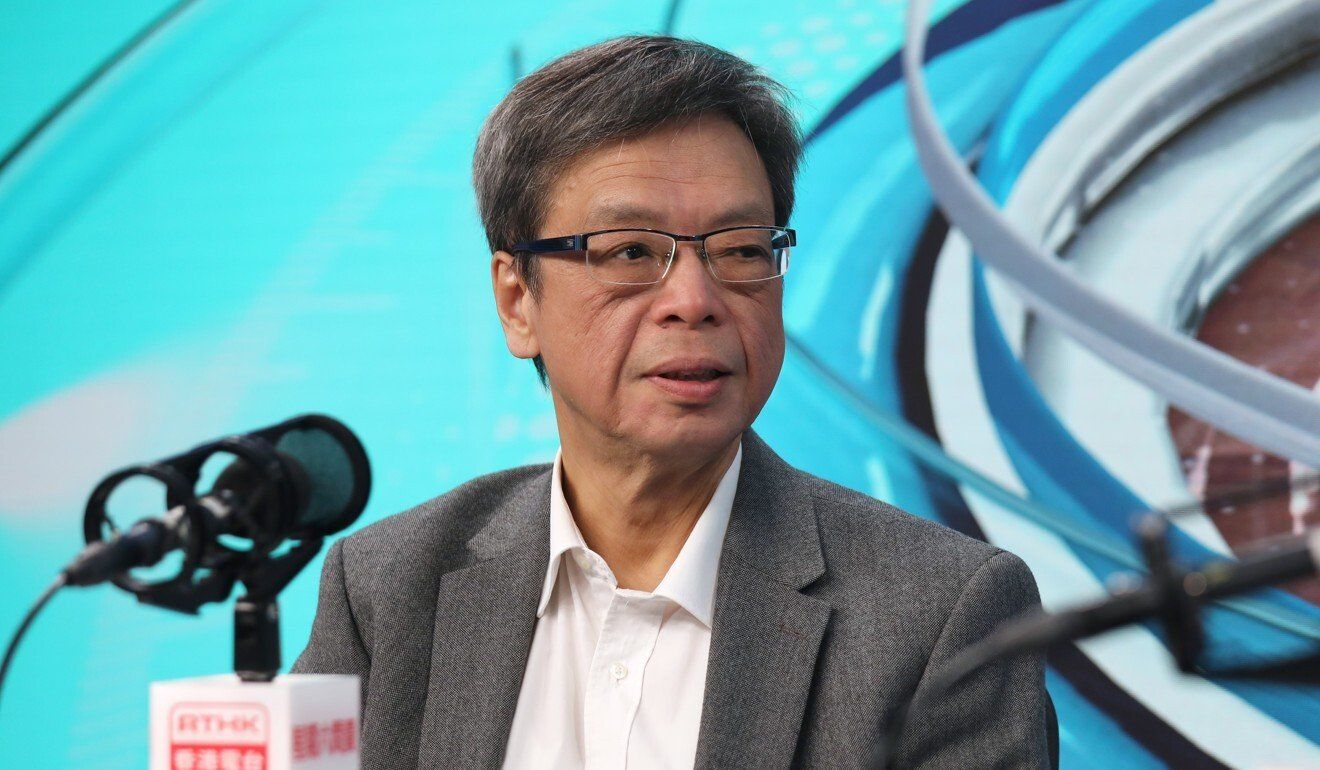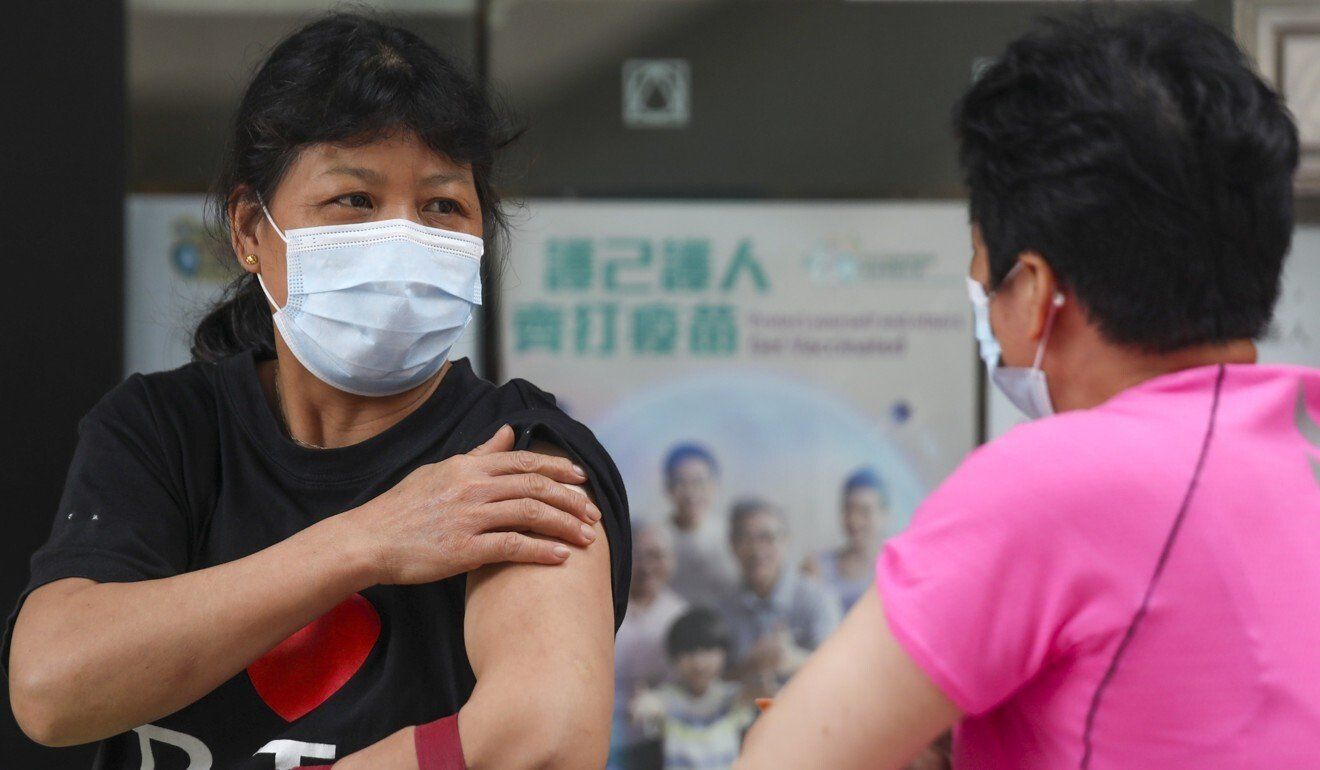Hong Kong News

Questions linger over Hong Kong’s Covid-19 antibody test plan
A Covid-19 antibody test will be a determining factor for whether fully vaccinated travellers have their mandatory quarantine period in Hong Kong halved to seven days starting later this month.
But scientists still cannot conclusively agree on whether the presence of antibodies gives a person immunity to the coronavirus.
While government advisory experts support the idea of reducing the amount of time fully inoculated people with the antibodies who also test negative for the coronavirus must spend in quarantine, at least one doctor has argued that the relationship between antibodies and protection against Covid-19 remains unclear.
Under the plan announced on Monday, the shorter quarantine will cover travellers returning from medium risk and high-risk countries. Taiwan has not officially been included in group B, or high-risk places, but faces the same entry requirements and is covered by the change.
 Respiratory medicine expert Dr Leung Chi-chiu.
Respiratory medicine expert Dr Leung Chi-chiu.
Government experts said the aim of the antibody test was to “show evidence of response to vaccination” and to help identify any false negative cases that could not be picked up by a nucleic acid test.
But Dr Leung Chi-chiu, a respiratory medicine expert, said that even if a person tested positive for antibodies, it did not mean they were immune from infection.
“We don’t know whether the antibodies would truly offer protection and immunity,” Leung said. “There are multiple factors affecting immunity … other [immune] cells such as T cells also play an important part.”
The detection of T cells could not be done by an antibody test but by another method.
An antibody test is usually carried out with blood samples. Newer technology also uses saliva, but it has not been widely recognised yet.
Questions also remained over whether the antibodies found in a person could be effective against the newly emerged coronavirus variants, Leung added.
He argued that false negative Covid-19 cases could be possible even if antibodies were present, as fully vaccinated people who were indeed infected usually produced them much quicker than unvaccinated ones.
If their infection was not detected by a nucleic acid test, they could be permitted the shorter quarantine period and possibly bring the virus into the community, he added.
In a statement last month, the United States Food and Drug Administration (FDA) said antibody tests “should not be used to evaluate a person’s level of immunity or protection from Covid-19 at any time, and especially after the person received a Covid-19 vaccination”.
Referring to people who had been vaccinated, the FDA said that the results of a Sars-CoV-2 antibody test should not be interpreted as “an indication of a specific level of immunity or protection from Sars-CoV-2 infection”.
It warned that if people interpreted the results of the antibody test as an indication of a specific level of immunity from Covid-19, there was “a potential risk that people may take fewer precautions against Sars-CoV-2 exposure”.
Should there be a minimum required threshold for the antibody test?
Government pandemic adviser Professor David Hui Shu-cheong said such a threshold would not be necessary, as there was no international definition of antibody levels that could guarantee protection.
A group of mainland Chinese scientists published in May the first national standards for measuring the amount of antibodies, but said more work would need to be done to establish a second-generation standard for levels that could effectively target coronavirus variants.
Which places are requiring travellers to undergo antibody tests?
Travellers arriving in Hong Kong can opt to refuse the test but will be subject to 14 days of quarantine. The mainland and Macau require arrivals to produce two test results – one for nucleic acid and one for an antibody related to recent infection – to prove they are virus-free.
For vaccinated travellers heading to the mainland, they can apply for a health code allowing them to enter different venues if they have tested positive for an antibody related to vaccination.
How can you get an antibody test in Hong Kong?
Alex Li Wai-chun, chairman of the Hong Kong Association of Medical Laboratories, said members of the public could get the test either at private laboratories or through finger-pricking rapid tests, which could be bought in places such as convenience stores.
About five private laboratories and four private hospitals in Hong Kong have been officially accredited to conduct the antibody tests. Li said some other labs that had not gained accreditation might also be able to perform the tests.
The Food and Health Bureau is expected to announce a separate list of recognised testing institutions allowed to conduct antibody tests accepted for the quarantine-period reduction plan.
 Two women check their arms after receiving Sinovac jabs at Central Library in Causeway Bay.
Two women check their arms after receiving Sinovac jabs at Central Library in Causeway Bay.
A blood test would be taken at laboratories to determine antibody levels, Li said, while the reliability should be high at the accredited labs and ones without formal accreditation yet, as the testing equipment and methods adopted should be similar.
A Post check of the five accredited labs found that the tests ranged in price from HK$300 (US$38) to HK$800, with results ready between one and five working days.
However, Li said the reliability of rapid tests might vary. Those testing kits usually produced results in about 10 to 20 minutes. One brand sold in pharmacy chain stores costs about HK$100.
“Under rapid tests, [results may] vary because of how one gets the blood sample … and the quality of each test kit could also vary,” he said.
“Therefore rapid tests cannot really replace lab tests, although they can provide relative convenience.”











